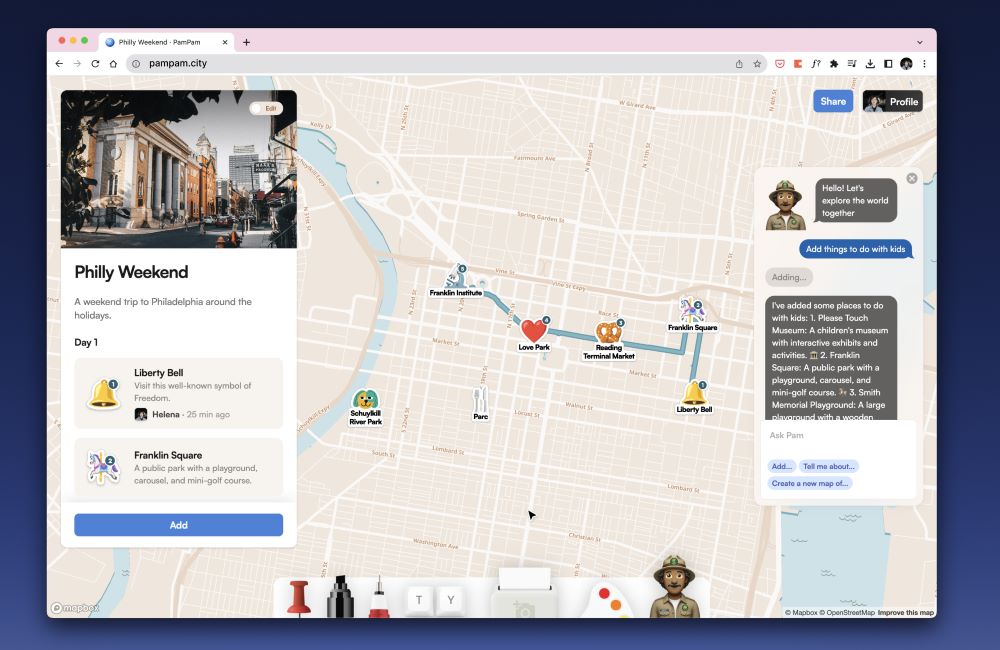If you only had three days to spend in Philadelphia, what would be on your itinerary?
If you panicked at the thought of narrowing down your options, generative AI company PamPam can help.
PamPam (the name is “map map” backward) uses artificial intelligence to create personalized maps and guides. This may come in the form of a walking tour map or guide from a tourist organization, but you can also use it to see what there is to do in your own neighborhood.
The site launched its beta product for consumers this week. Synced with Google Maps, PamPam gives a map view of the place you’re searching, suggestions of things to do there and a chat box to ask questions. The platform uses ChatGPT to make suggestions for activities and attractions.
Here’s a tutorial on making your own map within the platform:
The idea for PamPam stems from cofounders Helena Jaramillo and Carlo Joerges’ experiences moving to different cities and trying to connect to their new homes. Both founders are immigrants, Jaramillo from Ecuador and Joerges from Germany, and they’ve each moved for their careers, too.
“We’ve always had to explore new places — but not just explore new places, but also … make meaningful connections with new places, understand the history of places,” Jaramillo told Technical.ly. Their goal for PamPam “is to help people explore their cities and their world, both as tourists and as locals.”
East Passyunk-based Jaramillo and Joerges both have a decade of experience working in tech as product designers for companies such as Google and Facebook. Jaramillo is currently a senior product designer at Figma and Joerges is a product designer at Coda.
PamPam is both founders’ first company. It started out as a side project about a year ago.
“We love building products and then we started, slowly started, validating the problem over a year and realized that this had the potential to be a company, and we’re both excited about that and are kind of starting that journey now,” Jaramillo said.

The two-person team originally built PamPam for anyone to use. Their goal now is to work with cities and organizations such as tourist orgs or historical societies to create maps and guides, per Jaramillo. Working with these organizations, PamPam would develop a subscription-based model to create maps as well as an AI assistant that would offer additional information.
Jaramillo and Joerges see ChatGPT as an opportunity for mapmaking and organizational knowledge to become more accessible. But they don’t want to just rely on AI.
“We definitely believe that people have unique knowledge that AI does not have,” Jaramillo said. “We really believe in, you know, curated personalized experiences.”







